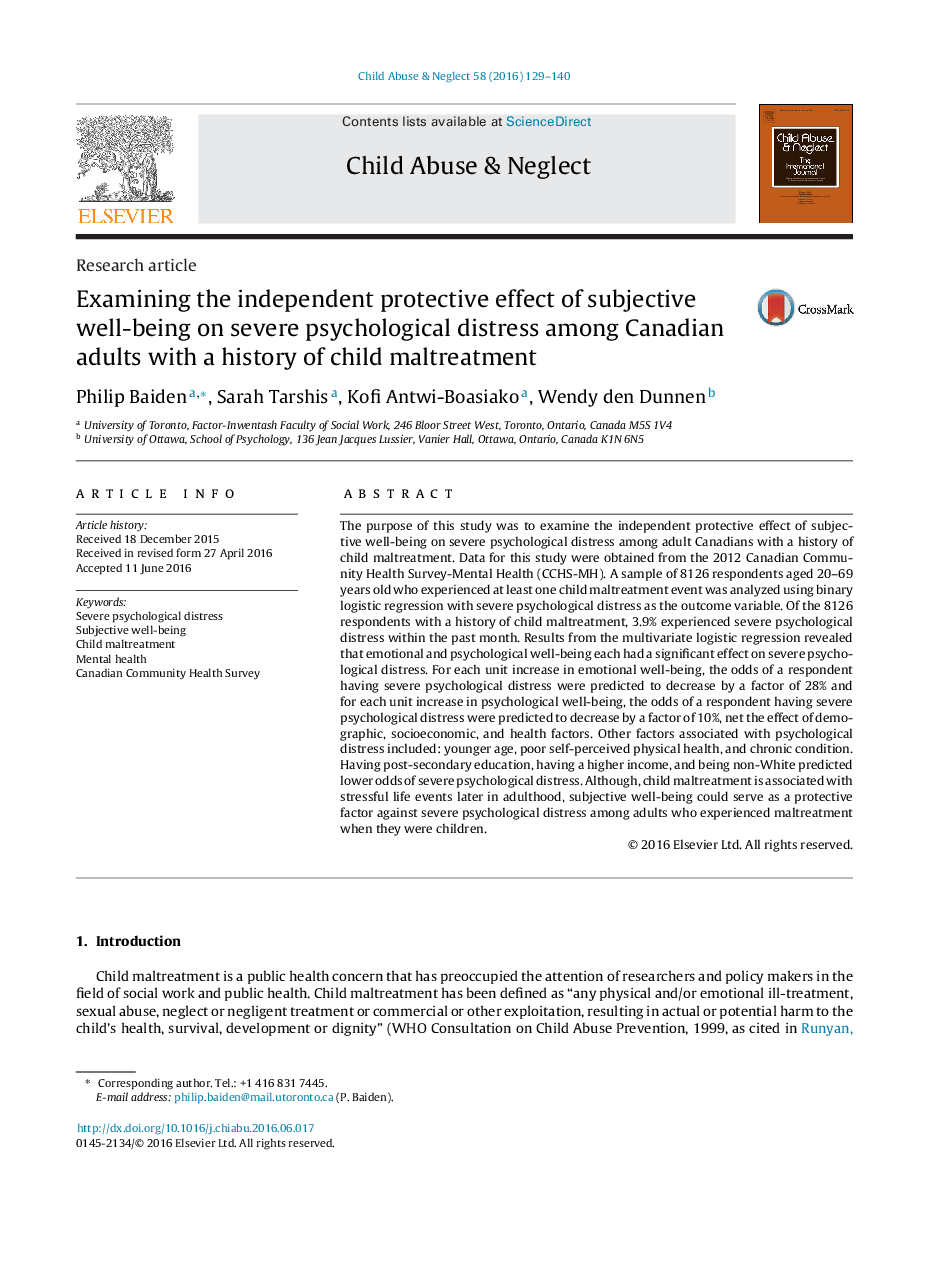| Article ID | Journal | Published Year | Pages | File Type |
|---|---|---|---|---|
| 6832271 | Child Abuse & Neglect | 2016 | 12 Pages |
Abstract
The purpose of this study was to examine the independent protective effect of subjective well-being on severe psychological distress among adult Canadians with a history of child maltreatment. Data for this study were obtained from the 2012 Canadian Community Health Survey-Mental Health (CCHS-MH). A sample of 8126 respondents aged 20-69 years old who experienced at least one child maltreatment event was analyzed using binary logistic regression with severe psychological distress as the outcome variable. Of the 8126 respondents with a history of child maltreatment, 3.9% experienced severe psychological distress within the past month. Results from the multivariate logistic regression revealed that emotional and psychological well-being each had a significant effect on severe psychological distress. For each unit increase in emotional well-being, the odds of a respondent having severe psychological distress were predicted to decrease by a factor of 28% and for each unit increase in psychological well-being, the odds of a respondent having severe psychological distress were predicted to decrease by a factor of 10%, net the effect of demographic, socioeconomic, and health factors. Other factors associated with psychological distress included: younger age, poor self-perceived physical health, and chronic condition. Having post-secondary education, having a higher income, and being non-White predicted lower odds of severe psychological distress. Although, child maltreatment is associated with stressful life events later in adulthood, subjective well-being could serve as a protective factor against severe psychological distress among adults who experienced maltreatment when they were children.
Related Topics
Health Sciences
Medicine and Dentistry
Perinatology, Pediatrics and Child Health
Authors
Philip Baiden, Sarah Tarshis, Kofi Antwi-Boasiako, Wendy den Dunnen,
